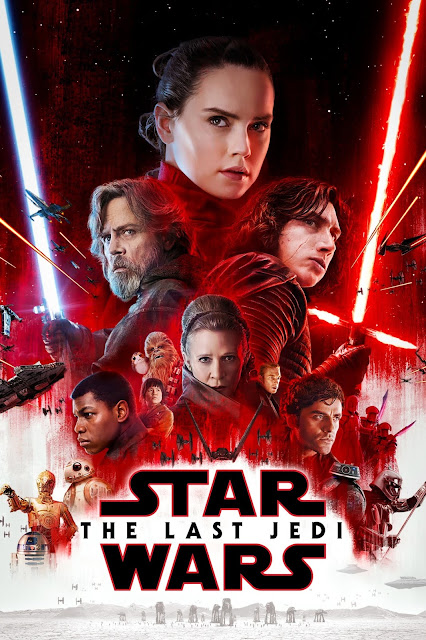Distributor: Curzon
Starring: Natalie Portman, Raffey Cassidy, Jude Law, Jennifer Ehle, Stacy Martin, Micheal Richardson & Christopher Abbott.
Running Time: 114 Mins
Seen At: HOME, Manchester, Wednesday, 8th May, 2019.
Brady Corbet, today’s American equivalent of the British ‘angry young men’ of the sixties, frequently played troubled, broken souls as an actor. None more so than the best friend of Joseph Gordon-Levitt’s conflicted hustler in Gregg Araki’s uncompromisingly punishing Mysterious Skin. After turning director with 2015’s Childhood Of A Leader, there’s a synchronised irony to the fact that his terrific, absorbing follow-up, Vox Lux, could’ve not only so easily been quite literally dubbed that ‘difficult second album’ directorially, but is a deceptively profound piece, plunged headlong into the strangest and most instantaneous of zeitgeists: that of celebrity. It brilliantly and very topically foregrounds our current preoccupations with fame, validation and the distortion of truth at any cost. Infinitely timely, without hammering its politic stance home with all the subtlety of a sledgehammer, as filmmakers such as Harmony Korine or enfante terrible Xavier Dolan could’ve done - it’s a chilly, expertly framed, gloriously uncompromising expose, as understated as it is unapologetically exaggerated - caught in the beautifully constructed, hyperbolic whirligig of consumerist pressure.
There’s a bold, Herrmann-esque, lyrically hallucinogenic score, the last from the late Scott Walker, who’s Vertigo-inducing, pounding, swooningly romanticised strings don’t feel a bit out of place, even in today’s aural landscape.
Opening in an act of stark, shocking style, when a 1999 high school is subjected to a horrendous shooting, with hauntingly indirect echoes of Columbine, which injures the shy Celeste (brilliantly played in teenage form by Raffey Cassidy, so striking in Tomorrowland and Killing Of A Sacred Deer). At the community’s candlelit vigil, she channels the collective mourning into an Adele-style pop-anthem, Wrapped Up, which unexpectedly goes global, turning her into an overnight star.
Taken begrudgingly under the wing of Jude Law’s washed-up music producer (Law’s best performance since 2012’s Anna Karenina), Cassidy’s fantastically assured, yet glassy-eyed demeanour, illustrates Celeste’s descension into someone already slightly jaded by a meteoric rise to fame. There’s a brilliant scene where she’s drawn into a vacuous evening liaison with a disinterested rock-band frontman (Micheal Richardson, grandson to Vanessa Redgrave) while they listen to her self-penned singles in the background.
Fast-forward twenty years to the present, and Celeste (who’s own daughter is also played by Cassidy), has now transfigured into a Bolan-like, unstable pre-millennial, courted by somewhat inevitable controversy. A glam-rock, quasi-Gaga figure, all peroxide purple quiff and temper tantrum, now played with barnstorming fearlessness by a career-best Natalie Portman, giving an absolute powerhouse performance of self-disillusionment. Her adult Celeste has lost that innocuous sheen of innocence, and Portman’s portrayal is deliciously mannered: twitchy, inflected and drug-addled. It’s the type of no-holds-barred, glorious star-turn, you so rarely see now, one which Academy votes should plump for in next year’s awards season - but probably won’t. She hides behind the high-street celebrity’s customarily eponymous dark sunglasses, to escape the perpetual scrum of press intrusion, and faces off mercilessly in a milkshake bar, against a fan who asks for a selfie, during a fractured attempt at mother/daughter bonding.
There’s a refreshingly minimalist approach to today’s wholly distracting spin-cycle of technology. Corbet doesn’t resort to citing mention of apps, filters or dreaded tweets that all-too often pop up on-screen - dating it immediately. Lol Crawley’s voyeuristic, constantly ominous cinematography, is almost reminiscent of Kubrick at times: static, singular shots, choosing to focus - in faux pop-documentary style - on one perspective, namely Celeste’s – always resisting rebelliously to cut to wide, never revealing the full picture.
Its thematic daring, in tackling an eclectic playlist of terrorism, pop, fame and politics, is handled every bit as delicately as Celeste’s fragile psyche. She holds the ISIS-like, publicity-seeking organisation to account at a press conference, and is in the grip of an electrically charged interview with a journalist (a cameo from the wonderfully unassuming Christopher Abbott, currently wowing as Yoyo, the lead in Catch-22).
She’s also in the frenzied midst of an exhaustive live tour of insistent ‘rebirth’. While approaching meltdown in her dressing room, condemning (punctuated between banshee wails) at being: ‘Treated like she’s not a person’ – you realize just how accurately acute the film must be in chronicling the transient, ever-fluctuating trajectory of celebrity. The tour’s grand-standing crowd-pleasers are written by a similarly unconventional iconoclast - Sia.
As the astonishing final scenes inside a huge arena arrive, with Portman decked-out in glitter and sequins, still tinged with that ever-present hollow strive for adoration, at too high a price, Corbet’s propulsive vision and verve plays out in the metronome of memory rather like the ultra-digitised career its anti-protagonist longs for: streamed on an endless loop, polarising, a deliberately acquired taste, but one you just can’t stop watching.
Rating: * * * * *






